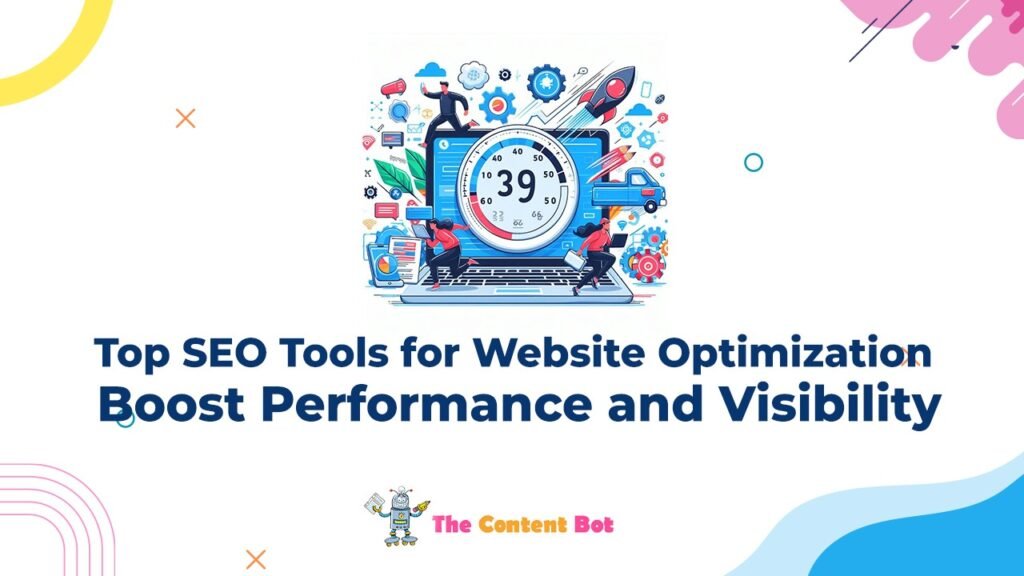There are several powerful tools available for SEO analysis and optimization that can help you improve your website’s performance and visibility in search engine results. Here are some of the top tools widely used by SEO professionals:
1. Google Search Console (GSC)
- Key Features:
- Performance Reports: Provides data on search queries, impressions, clicks, and click-through rates (CTRs) for your website.
- Index Coverage: Identifies indexing issues such as crawl errors, coverage errors, and sitemap status.
- URL Inspection Tool: This allows you to inspect how Google crawls and indexes specific URLs on your site.
- Benefits:
- Monitors website performance in Google search results.
- Helps diagnose and fix technical SEO issues.
- Provides insights into keyword performance and user engagement metrics.
2. Google Analytics
- Key Features:
- Traffic Analysis: Tracks website traffic sources, user behavior, and conversion metrics.
- Audience Insights: Provides demographic data, user interests, and device categories.
- Goal Tracking: Sets and tracks specific goals such as form submissions, purchases, or sign-ups.
- Benefits:
- Offers comprehensive website analytics for informed decision-making.
- Identifies high-performing pages, keywords, and traffic sources.
- Measures the effectiveness of SEO strategies in driving organic traffic and conversions.
3. Ahrefs
- Key Features:
- Keyword Explorer: Conducts in-depth keyword research, including search volume, keyword difficulty, and related keyword suggestions.
- Site Explorer: Analyzes backlink profiles, domain authority, and organic search traffic for any website.
- Content Explorer: Identifies top-performing content and content gaps for targeted keyword opportunities.
- Benefits:
- Provides comprehensive SEO insights, including keyword analysis and competitor research.
- Offers actionable data for link building, content planning, and site optimization.
- Monitors keyword rankings and tracks backlink growth over time.
4. SEMrush
- Key Features:
- Keyword Magic Tool: Generates keyword ideas, analyzes keyword difficulty, and provides search volume data.
- Position Tracking: Monitors keyword rankings and SERP (search engine results page) features.
- On-Page SEO Checker: Audits content for SEO optimization and suggests improvements.
- Benefits:
- Offers a complete suite of SEO and digital marketing tools for keyword research, competitive analysis, and site auditing.
- Provides insights into PPC campaigns, social media performance, and content strategy.
- Helps optimize content and monitor SEO performance with actionable recommendations.
5. Moz Pro
- Key Features:
- Keyword Explorer: Conducts keyword research, analyzes keyword difficulty, and tracks keyword rankings.
- Site Crawl: Identifies technical SEO issues like broken links, duplicate content, and crawl errors.
- Link Explorer: Analyzes backlink profiles, domain authority, and spam score.
- Benefits:
- Focuses on comprehensive SEO analysis, including on-page SEO, technical SEO, and link building.
- Provides actionable insights and recommendations to improve website performance.
- Offers tools for local SEO optimization and rank tracking.
6. Yoast SEO (WordPress Plugin)
- Key Features:
- Content Optimization: Provides real-time feedback on readability, keyword usage, and meta tags directly within the WordPress editor.
- XML Sitemap Generator: Generates XML sitemaps for improved crawling and indexing.
- Social Media Integration: Optimizes content for social sharing and Open Graph metadata.
- Benefits:
- Simplifies on-page SEO optimization for WordPress websites.
- Helps improve content quality and metadata for better search engine visibility.
- Integrates with other WordPress plugins and tools for enhanced functionality.
7. Screaming Frog SEO Spider
- Key Features:
- Website Crawling: Crawls websites to identify technical SEO issues such as broken links, duplicate content, and missing meta tags.
- Site Structure Analysis: Analyzes website structure, internal linking, and URL hierarchy.
- XML Sitemap Generator: Generates XML sitemaps for efficient crawling and indexing.
- Benefits:
- Provides detailed insights into website structure and technical SEO issues.
- Helps diagnose and fix on-page and off-page SEO issues.
- Offers data visualization and reporting features for actionable insights.
8. SpyFu
- Key Features:
- Competitor Analysis: Identifies competitor keywords, ad campaigns, and backlink profiles.
- Keyword Research: Generates keyword suggestions, search volume data, and cost-per-click (CPC) estimates.
- PPC Analysis: Analyzes PPC ad performance, ad spend, and ad copy variations.
- Benefits:
- Focuses on competitive intelligence and keyword research for SEO and PPC campaigns.
- Provides insights into competitor strategies and industry trends.
- Helps optimize keyword targeting and ad campaigns for improved ROI.
9. Ubersuggest
- Key Features:
- Keyword Research: Offers keyword suggestions, search volume data, and keyword difficulty scores.
- Content Ideas: Generates content topic ideas based on keyword trends and industry insights.
- Site Audit: Identifies SEO issues such as broken links, missing meta tags, and page speed optimizations.
- Benefits:
- Simplifies keyword research and content planning for SEO campaigns.
- Provides actionable SEO recommendations and site audit reports.
- Offers competitive analysis and backlink data for strategic decision-making.
These SEO tools cater to different aspects of website analysis, optimization, and performance tracking. Depending on your specific needs and budget, you can leverage one or more of these tools to enhance your SEO strategy, improve search engine visibility, and drive organic traffic to your website. Be sure to explore each tool’s features and functionalities to maximize their benefits for your SEO efforts.


